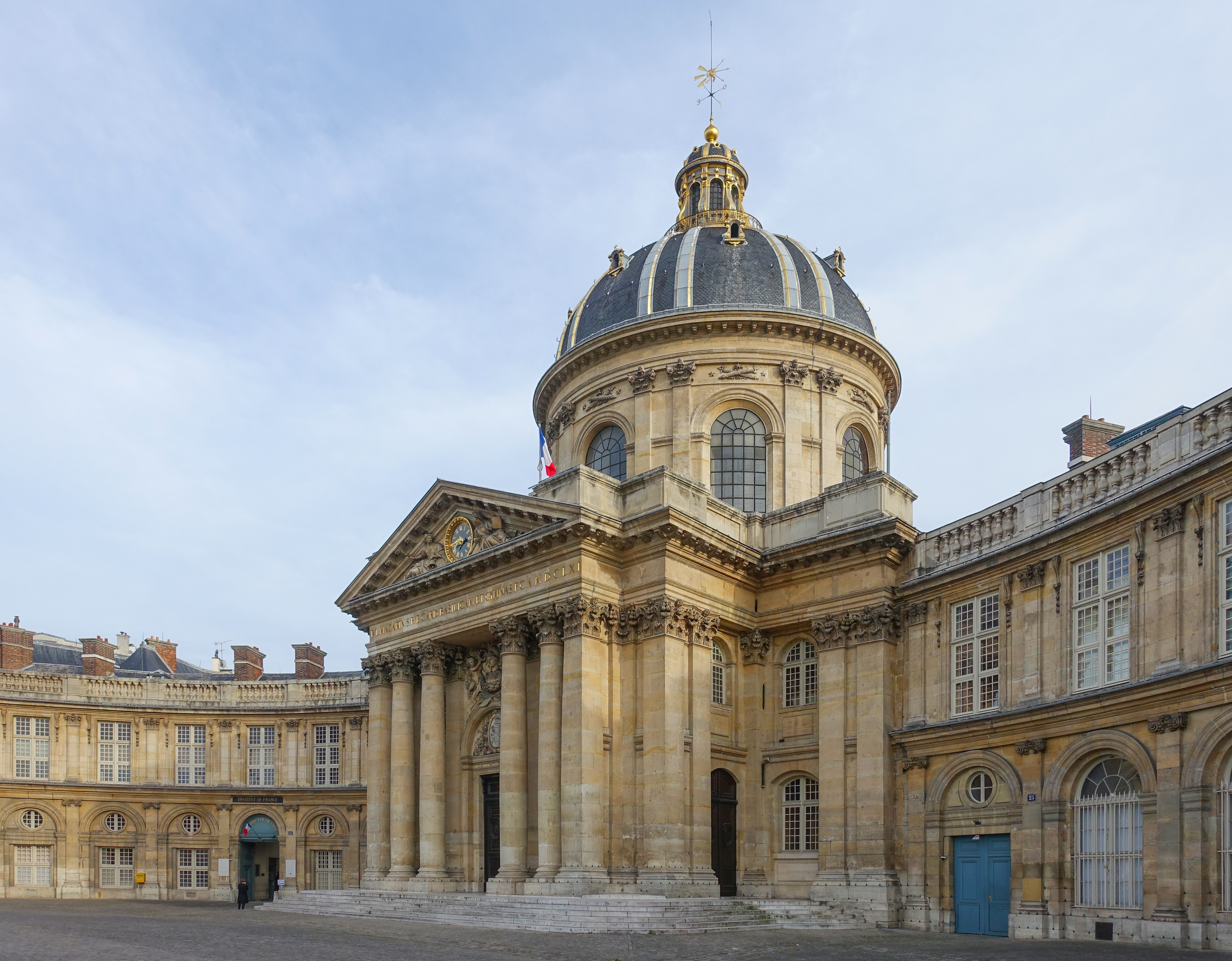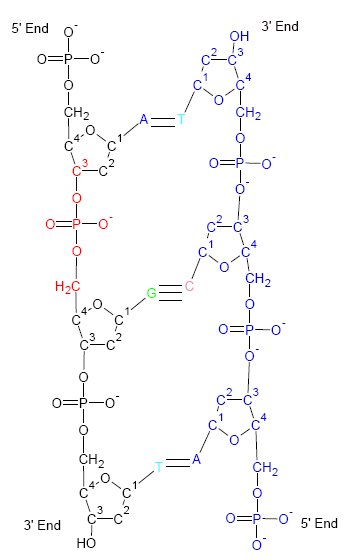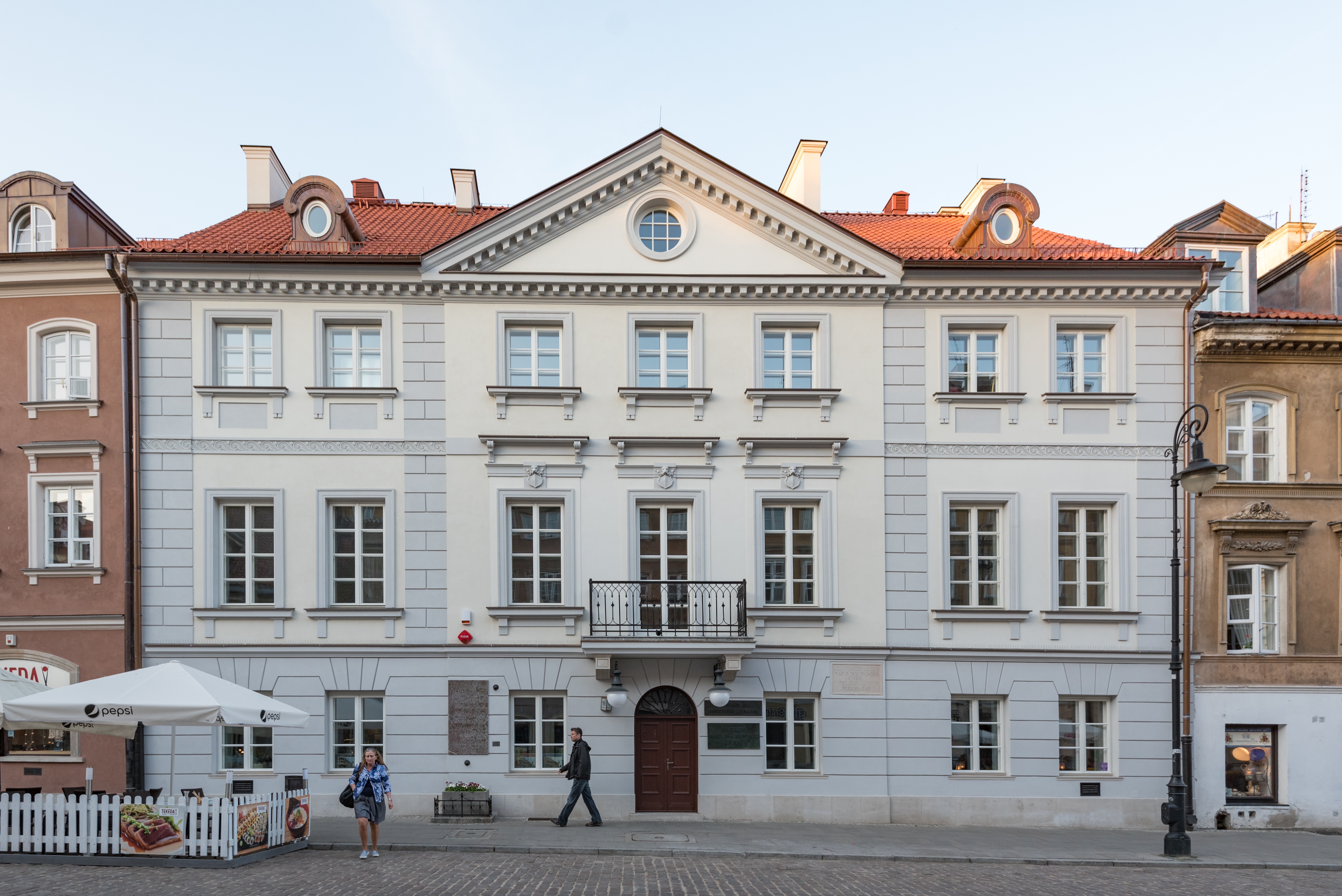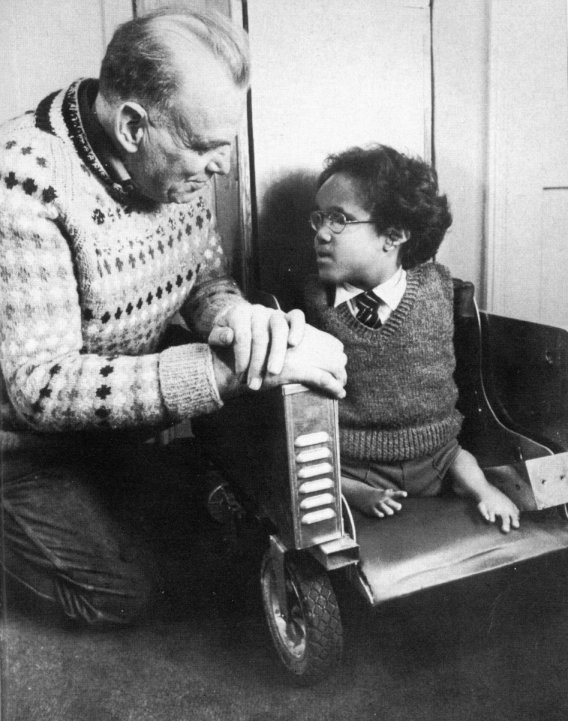|
On Giants' Shoulders
''On Giants' Shoulders'' was written in 1998 by Melvyn Bragg. The book was assembled after a series of interviews Bragg had with current scientists about the world's greatest scientists such as Archimedes, Isaac Newton and Einstein. Bragg, who brands himself as a "non-scientist", conducted these interviews on BBC Radio 4 for other non-scientists. The book looks at the notion of being a "genius" and through discussions with 20th-century scientists explores the extent to which the great scientists of history were geniuses. The book's title is taken from Newton's 1675 quote: "If I have seen further it is by standing on the shoulders of giants." Inspiration In the introduction to ''On Giants' Shoulders'' Bragg writes that the world of science was one of mystery and could not be entered nor understood by non-scientists such as himself. Thus he wrote this book, along with scientists, to open a door for other non-scientists to view the world of science as it has been for the past 2,500 ... [...More Info...] [...Related Items...] OR: [Wikipedia] [Google] [Baidu] |
Melvyn Bragg
Melvyn Bragg, Baron Bragg, (born 6 October 1939), is an English broadcaster, author and parliamentarian. He is best known for his work with ITV as editor and presenter of ''The South Bank Show'' (1978–2010), and for the BBC Radio 4 documentary series ''In Our Time''. Earlier in his career, Bragg worked for the BBC in various roles including presenter, a connection that resumed in 1988 when he began to host ''Start the Week'' on Radio 4. After his ennoblement in 1998, he switched to presenting the new ''In Our Time'', an academic discussion radio programme, which has run to over 900 broadcast editions and is a popular podcast. He was Chancellor of the University of Leeds from 1999 until 2017. Early life Bragg was born on 6 October 1939 in Carlisle, the son of Stanley Bragg, a stock keeper turned mechanic, and Mary Ethel (née Park), a tailor; both the Braggs and Parks- both families of Cumberland- were agricultural labourers, also working at collieries and in domestic servi ... [...More Info...] [...Related Items...] OR: [Wikipedia] [Google] [Baidu] |
Antoine Lavoisier
Antoine-Laurent de Lavoisier ( , ; ; 26 August 17438 May 1794), When reduced without charcoal, it gave off an air which supported respiration and combustion in an enhanced way. He concluded that this was just a pure form of common air and that it was the air itself "undivided, without alteration, without decomposition" which combined with metals on calcination. After returning from Paris, Priestley took up once again his investigation of the air from mercury calx. His results now showed that this air was not just an especially pure form of common air but was "five or six times better than common air, for the purpose of respiration, inflammation, and ... every other use of common air". He called the air dephlogisticated air, as he thought it was common air deprived of its phlogiston. Since it was therefore in a state to absorb a much greater quantity of phlogiston given off by burning bodies and respiring animals, the greatly enhanced combustion of substances and the greater e ... [...More Info...] [...Related Items...] OR: [Wikipedia] [Google] [Baidu] |
Books By Melvyn Bragg
A book is a medium for recording information in the form of writing or images, typically composed of many pages (made of papyrus, parchment, vellum, or paper) bound together and protected by a cover. The technical term for this physical arrangement is ''codex'' (plural, ''codices''). In the history of hand-held physical supports for extended written compositions or records, the codex replaces its predecessor, the scroll. A single sheet in a codex is a leaf and each side of a leaf is a page. As an intellectual object, a book is prototypically a composition of such great length that it takes a considerable investment of time to compose and still considered as an investment of time to read. In a restricted sense, a book is a self-sufficient section or part of a longer composition, a usage reflecting that, in antiquity, long works had to be written on several scrolls and each scroll had to be identified by the book it contained. Each part of Aristotle's ''Physics'' is called a bo ... [...More Info...] [...Related Items...] OR: [Wikipedia] [Google] [Baidu] |
James D
James is a common English language surname and given name: *James (name), the typically masculine first name James * James (surname), various people with the last name James James or James City may also refer to: People * King James (other), various kings named James * Saint James (other) * James (musician) * James, brother of Jesus Places Canada * James Bay, a large body of water * James, Ontario United Kingdom * James College, a college of the University of York United States * James, Georgia, an unincorporated community * James, Iowa, an unincorporated community * James City, North Carolina * James City County, Virginia ** James City (Virginia Company) ** James City Shire * James City, Pennsylvania * St. James City, Florida Arts, entertainment, and media * ''James'' (2005 film), a Bollywood film * ''James'' (2008 film), an Irish short film * ''James'' (2022 film), an Indian Kannada-language film * James the Red Engine, a character in ''Thomas the Tank En ... [...More Info...] [...Related Items...] OR: [Wikipedia] [Google] [Baidu] |
Francis Crick
Francis Harry Compton Crick (8 June 1916 – 28 July 2004) was an English molecular biologist, biophysicist, and neuroscientist. He, James Watson, Rosalind Franklin, and Maurice Wilkins played crucial roles in deciphering the helical structure of the DNA molecule. Crick and Watson's paper in ''Nature'' in 1953 laid the groundwork for understanding DNA structure and functions. Together with Maurice Wilkins, they were jointly awarded the 1962 Nobel Prize in Physiology or Medicine "for their discoveries concerning the molecular structure of nucleic acids and its significance for information transfer in living material". Crick was an important theoretical molecular biologist and played a crucial role in research related to revealing the helical structure of DNA. He is widely known for the use of the term " central dogma" to summarise the idea that once information is transferred from nucleic acids (DNA or RNA) to proteins, it cannot flow back to nucleic acids. In other words ... [...More Info...] [...Related Items...] OR: [Wikipedia] [Google] [Baidu] |
Marie Curie
Marie Salomea Skłodowska–Curie ( , , ; born Maria Salomea Skłodowska, ; 7 November 1867 – 4 July 1934) was a Polish and naturalized-French physicist and chemist who conducted pioneering research on radioactivity. She was the first woman to win a Nobel Prize, the first person and the only woman to win a Nobel Prize twice, and the only person to win a Nobel Prize in two scientific fields. Her husband, Pierre Curie, was a co-winner of her first Nobel Prize, making them the first-ever married couple to win the Nobel Prize and launching the Curie family legacy of five Nobel Prizes. She was, in 1906, the first woman to become a professor at the University of Paris. She was born in Warsaw, in what was then the Kingdom of Poland, part of the Russian Empire. She studied at Warsaw's clandestine Flying University and began her practical scientific training in Warsaw. In 1891, aged 24, she followed her elder sister Bronisława to study in Paris, where she earned her highe ... [...More Info...] [...Related Items...] OR: [Wikipedia] [Google] [Baidu] |
Sigmund Freud
Sigmund Freud ( , ; born Sigismund Schlomo Freud; 6 May 1856 – 23 September 1939) was an Austrian neurologist and the founder of psychoanalysis, a clinical method for evaluating and treating psychopathology, pathologies explained as originating in conflicts in the Psyche (psychology), psyche, through dialogue between a patient and a psychoanalyst. Freud was born to Galician Jews, Galician Jewish parents in the Moravian town of Příbor, Freiberg, in the Austrian Empire. He qualified as a doctor of medicine in 1881 at the University of Vienna. Upon completing his habilitation in 1885, he was appointed a docent in neuropathology and became an affiliated professor in 1902. Freud lived and worked in Vienna, having set up his clinical practice there in 1886. In 1938, Freud left Austria to escape Nazi persecution. He died in exile in the United Kingdom in 1939. In founding psychoanalysis, Freud developed therapeutic techniques such as the use of free association (psychology), free a ... [...More Info...] [...Related Items...] OR: [Wikipedia] [Google] [Baidu] |
Jules Henri Poincaré
Jules is the French form of the Latin "Julius" (e.g. Jules César, the French name for Julius Caesar). It is the given name of: People with the name *Jules Aarons (1921–2008), American space physicist and photographer *Jules Abadie (1876–1953), French politician and surgeon *Jules Accorsi (born 1937), French football player and manager *Jules Adenis (1823–1900), French playwright and opera librettist *Jules Adler 1865–1952), French painter * Jules Asner (born 1968), American television personality * Jules Aimé Battandier (1848–1922), French botanist *Jules Bernard (born 2000), American basketball player *Jules Bianchi (1989–2015), French Formula One driver *Jules Breton (1827–1906), French Realist painter * Jules-André Brillant (1888–1973), Canadian entrepreneur *Jules Brunet (1838–1911), French Army general *Jules Charles-Roux (1841–1918), French businessman and politician *Jules Dewaquez (1899–1971), French footballer *Jules Marie Alphonse Jacques de Di ... [...More Info...] [...Related Items...] OR: [Wikipedia] [Google] [Baidu] |
Charles Darwin
Charles Robert Darwin ( ; 12 February 1809 – 19 April 1882) was an English naturalist, geologist, and biologist, widely known for his contributions to evolutionary biology. His proposition that all species of life have descended from a common ancestor is now generally accepted and considered a fundamental concept in science. In a joint publication with Alfred Russel Wallace, he introduced his scientific theory that this branching pattern of evolution resulted from a process he called natural selection, in which the struggle for existence has a similar effect to the artificial selection involved in selective breeding. Darwin has been described as one of the most influential figures in human history and was honoured by burial in Westminster Abbey. Darwin's early interest in nature led him to neglect his medical education at the University of Edinburgh; instead, he helped to investigate marine invertebrates. His studies at the University of Cambridge's Christ's Col ... [...More Info...] [...Related Items...] OR: [Wikipedia] [Google] [Baidu] |
Michael Faraday
Michael Faraday (; 22 September 1791 – 25 August 1867) was an English scientist who contributed to the study of electromagnetism and electrochemistry. His main discoveries include the principles underlying electromagnetic induction, diamagnetism and electrolysis. Although Faraday received little formal education, he was one of the most influential scientists in history. It was by his research on the magnetic field around a conductor carrying a direct current that Faraday established the concept of the electromagnetic field in physics. Faraday also established that magnetism could affect rays of light and that there was an underlying relationship between the two phenomena.. the 1911 Encyclopædia Britannica. He similarly discovered the principles of electromagnetic induction, diamagnetism, and the laws of electrolysis. His inventions of electromagnetic rotary devices formed the foundation of electric motor technology, and it was largely due to his efforts t ... [...More Info...] [...Related Items...] OR: [Wikipedia] [Google] [Baidu] |
Sir Isaac Newton
Sir Isaac Newton (25 December 1642 – 20 March 1726/27) was an English mathematician, physicist, astronomer, alchemist, theologian, and author (described in his time as a "natural philosopher"), widely recognised as one of the greatest mathematicians and physicists and among the most influential scientists of all time. He was a key figure in the philosophical revolution known as the Enlightenment. His book (''Mathematical Principles of Natural Philosophy''), first published in 1687, established classical mechanics. Newton also made seminal contributions to optics, and shares credit with German mathematician Gottfried Wilhelm Leibniz for developing infinitesimal calculus. In the , Newton formulated the laws of motion and universal gravitation that formed the dominant scientific viewpoint for centuries until it was superseded by the theory of relativity. Newton used his mathematical description of gravity to derive Kepler's laws of planetary motion, account for ti ... [...More Info...] [...Related Items...] OR: [Wikipedia] [Google] [Baidu] |
Terry Wiles
Terrence 'Terry' Wiles (born 12 January 1962) was one of the most disabled thalidomide babies born in the UK. He has since become known internationally through the Emmy Award winningNewland, Paul (ed), ''Don't Look Now: British Cinema in the 1970s'' Published by Intellect Bristol & Chicago (2010) pg 86 '''' television drama '''' and the best-selling book of the same name. Early life He was born as Andrew Maul ...[...More Info...] [...Related Items...] OR: [Wikipedia] [Google] [Baidu] |







